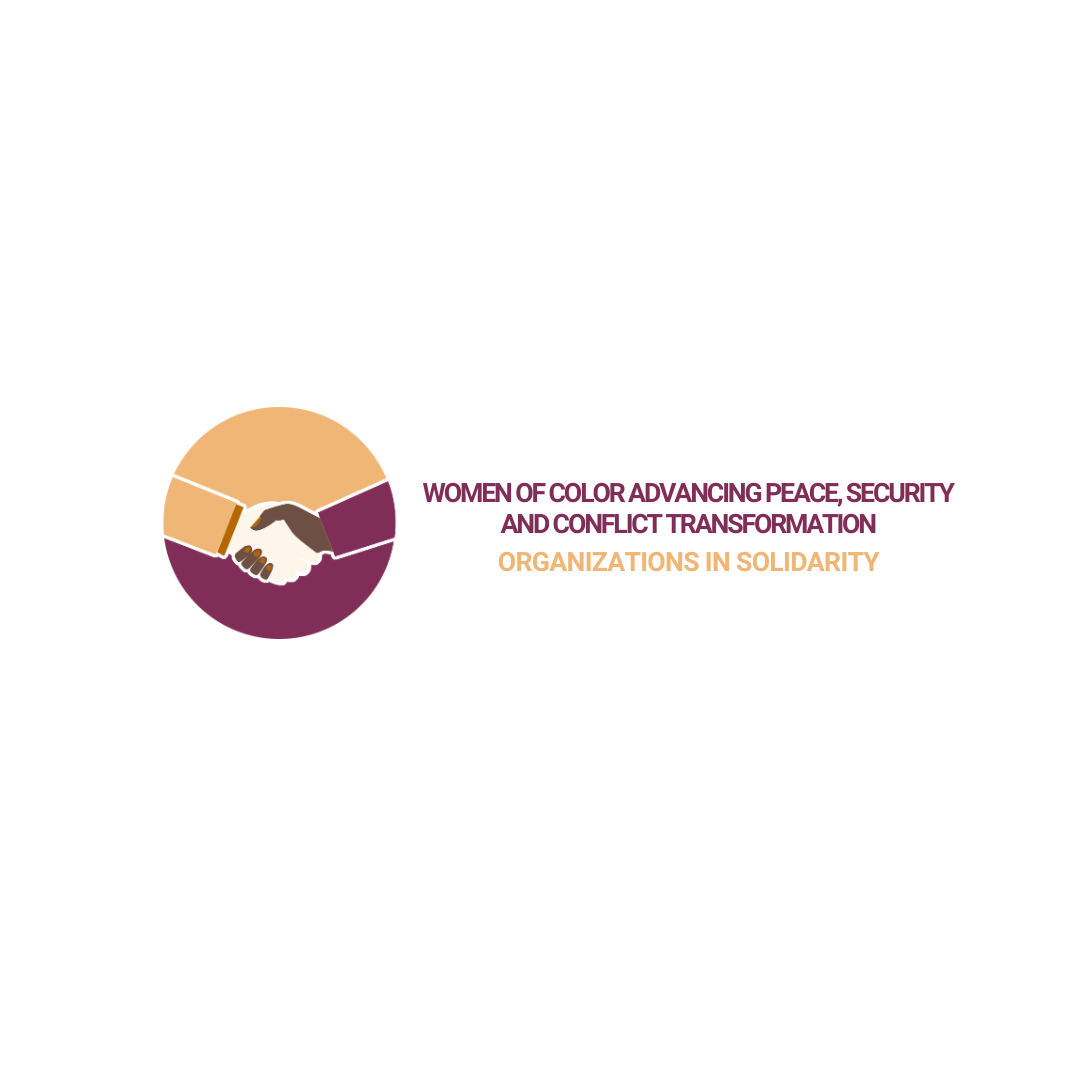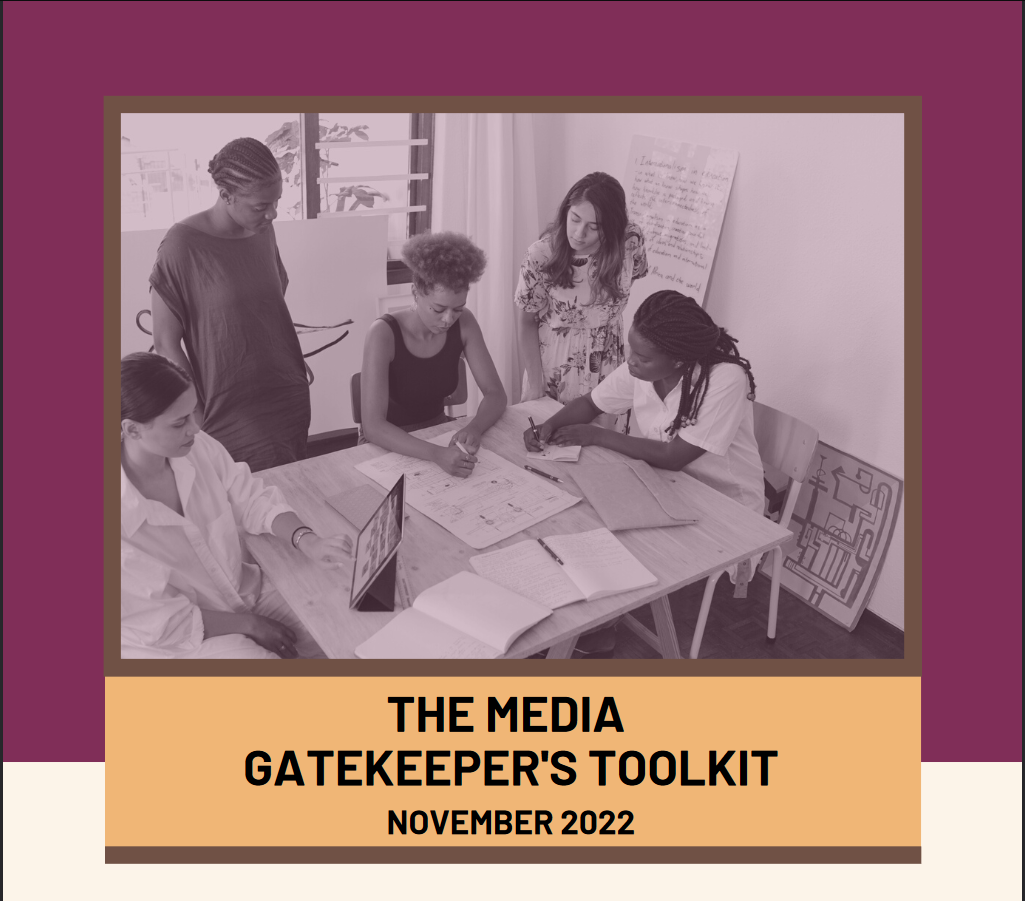
OrgsinSolidarity Publications
OrgsinSolidarity partners with various experts and consultants to produce unique publications and reports on timely topics that can be used by other organizations and individuals. We welcome anyone to use these publications and take action. OrgsinSolidarity’s working groups delve into a variety of pressing issues affecting women of color in the fields of foreign policy, peace, security and conflict transformation. In an effort to shine a light around these cross-cutting issues, OiS working groups have produced the following publications.
Purpose: In the realm of nonprofit organizations, fostering diversity, equity, and inclusion (DEI) isn't just a moral imperative—it's also a strategic necessity. A dedicated DEI budget is crucial to fueling initiatives that go beyond rhetoric and truly drive positive change. However, it can be difficult to know where to start when contemplating a DEI budget.
Key content: This resource aims to delve beyond the compelling reasons why DEI budgeting is not just a moral imperative but a strategic necessity for non-profit organizations and provide guidance on how to implement DEI into their organizational budgets.
Purpose: The aim of this case study is to provide a foundation for peace and security organizations in the D.C., Maryland, and Virginia area to engage with local and low-income job seekers through organizations that support them.
Key content: This review highlights the significant impact of job training programs in empowering communities and low-income families. By equipping them with essential skills and knowledge, these programs play a vital role in helping individuals secure stable employment and break the cycle of poverty. In the DMV region (District of Columbia, Maryland, and Virginia), several initiatives have been established to address the unique challenges faced by community members and families in need. These initiatives not only provide practical skills but also instill a sense of self-confidence and a hopeful outlook for a better future.
Purpose: This publication aims to create guidelines that reflect some of the best practices that organizations can adopt to diversify boards.
Key content: This publication examines challenges and opportunities organizations face in diversifying their boards and lays down concrete principles that organizations can incorporate and offers direction that board members can follow to ensure a diverse board.
Purpose: Along with its companion resources, Advancing Equity: Mentorship in Peace and Security and Approaching Mentorship Report, this workbook is intended to facilitate effective engagement of both long-time and aspiring mentees and mentors in a practice that can change the make-up and impact of our field: mentorship.
Key content: Effective mentorship improves the diversity of organizations and the professional experiences of and opportunities available to people of color. Organizations in Solidarity (OiS) created its Mentorship Hub to welcome, connect, and support its members and allies in making mentorship more accessible and of a higher quality within and across peace, security, and foreign policy disciplines, especially for people of color.
Purpose: This factsheet is intended to provide organizations in the peace and security space with guidelines and parameters that could aid them in institutionalizing policies on honorariums in their own organizations. As a relatively non-uniform practice in the peace and security space, this factsheet aims to demystify the honorarium process, making it easier for organizations to institutionalize honorariums, rather than working on an as-needed level.
Key Content: Included in this factsheet are how honorariums are connected to DEI, and key considerations for honorarium policies.
Purpose: This project explores ways language and nonverbal communication can impact individuals and organizations. It examines opportunities to understand ways microaggressions serve to further structural inequalities, and develops next steps to realize the opportunities for social and organizational changes around these challenges. We also provide examples of how participants handle incidents of microaggressions, and share initial findings on how negative experiences affect psychological health and professional development.
Key content: This is the final report of a multi-year project that analyzes microaggressions in the language used across peace and security communities of practice.
Purpose: This publication was released to provide an update on the activities of organizations and individuals who signed the Standing Together Against Racism and Discrimination Statements, US and UK WCAPs, that launched in June 2020.
Key content: The 2022 Survey Report contains a summary of data that breaks down the participants’ perspectives on our 12 commitments, and diversity issues and challenges.
Purpose: Together with the Advancing Equity: Mentorship in Peace and Security report, we intend this guide to serve as a foundation of knowledge, support, and inspiration from which aspiring and long-time professionals in peace, security, and foreign policy can build life- and field-changing relationships through mentorship.
Key Content: In this guide, we clarify shared definitions of concepts and terminology necessary for mentorship, discuss the key similarities and differences in overlapping relationships, and provide a solid launching point for mentors and mentees alike.
Purpose: This publication focuses on creating resources to understand and improve the landscape of mentorship.
Key content: In this report, we synthesize findings from original interviews and extensive research into what makes an effective DEI strategy, the impact of mentorship—particularly on people of color—and how to elevate equity-focused mentoring within the fields of peace, security, and foreign policy. We close with a recommendation to CRAVE mentoring opportunities by founding, joining, or supporting initiatives that: create opportunity for cross-identity contact; establish responsibility structures; cultivate social accountability for involvement; are voluntary; and engage participants in their evolution.
Purpose: To increase the voice share for peace and security experts of color in the media and other public spaces.
Key content: This toolkit includes tips, suggestions, and examples for various media communication settings (e.g., panels, press, and social media) to support people of color. It includes a discussion guide to create a starting point and have conversations with your organizations and colleagues.
Purpose: This publication was released to provide an update on the activities of organizations and individuals who signed the Standing Together Against Racism and Discrimination Statements, US and UK WCAPs, that launched in June 2020.
Key content: The 2021 Survey Report contains a summary of data that breaks down the participants’ perspectives on our 12 commitments, and diversity issues and challenges.
Purpose: This paper examines white supremacy through a lens that aims to better and more inclusively define it systemically and individually.
Key content: White supremacist culture is a widespread ideology baked into beliefs, norms, and standards of groups, communities, towns, states, and nations that teaches people both overtly and covertly that whiteness holds intrinsic value. Each section of this paper explores the diverse social and policy implications that influence the creation and sustenance of white supremacy in human culture, systems, and social settings by exploring the historical foundations as well as implications domestically and internationally.
Working Group Publications
Policy Papers by Women of Color
Policy Papers by Women of Color gives women practitioners of color in the field of peace, security, and foreign policy a space to publish timely articles on relevant issues, updates and much-needed diverse perspectives.
Purpose: This ninth edition of the Policy Papers by Women of Color focuses on and provides a platform for Pipeline Fellowship Program participants’ relevant insights and recommendations on their respective fields.
Key content: The WCAPS Pipeline Fellowship Program provides an opportunity for college and university students, as well as young adults and early career professionals, to develop a broad understanding of the different dimensions of peace, security ,and foreign policy through engagement with WCAPS members, to include young, mid-career and senior-level women and men.
Purpose: Emerging experts and professionals who are women of color in providing timely recommendations for issues in their respective fields.
Key content: The culmination of these five policy recommendations written by women of color covers a variety of issue areas that are relevant and researched and most importantly the passion areas for WCAPS members. Topics include Bridging digital accessibility for Rural Bluefields, Nicaragua; African Students at US Colleges and Universities; The Hyper-Militarization of Law Enforcement Agencies in the United States; Preserving Human Rights amidst conflict in the Digital Age; and The Rise of Suburbanization and Food Security.
Purpose: To explore the topics of colonial legacies in international development and humanitarian aid work, from staffing and institution building to food aid and global tourism.
Key content: Exploring these topics and seeking to deconstruct the systems and structures that impede success in development and humanitarian efforts is critically important in ensuring that we ultimately meet global goals and restore integrity to our sector.
Purpose: The intent behind this article is to empower girls from a young age and strengthen the pipeline of these girls and women as they mature. This publication provides a platform for emerging Gen-Z practitioners in the field to share their insight and opinions on a variety of timely issues.
Key content: This publication discusses a return to individual rights, increasing diversity of voices in an increasingly globalized world, understanding the need of human security, and understanding the current context of national security and the need to redefine it.
Purpose: The fifth edition of Policy Papers by Women of Color aims to bring awareness to the clear pattern of economic, social and cultural discrimination faced by people of color in France.
Key content: This policy paper focuses on racial, socio-economic, and cultural discriminations Racialized and minority groups (RMGs) ensure in accessing quality health care in France; and the inadequate response to their health needs as a result. It explores how racism and intersectional discrimination contribute to the deterioration of both health status and quality of life for RMGs.
Purpose: To hear from women of color with expertise in the field of national security who aim to intentionally engage with and redefine current language in national security.
Key content: Many issues traditionally included in the definition of national security do not reflect those that are most challenging and that have a more negative impact on diverse populations, particularly women of color. The articles in the edition discuss redefining security, health, human rights and the role of the state, immigration, terrorism and counterterrorism, as well as multilateralism and bilateralism.
Purpose: Recognizing the importance of young adults being heard on issues that affect them, this compilation of papers by women of color features Women of Color Advancing Peace, Security and Conflict Transformation members gives early career practitioners a space to publish their first articles.
Key content: The First Time Publishers Edition offers policy recommendations on a variety of subjects by WCAPS Young Ambassadors and young women of color who are emerging voices within their respective fields.
Purpose: The Global Health Security and Chemical, Biological, Radiological and Nuclear Security WCAPS working groups have collaborated to put forth emerging challenges that the world faces from Weapons of Mass Destruction and infectious disease.
Key content: This edition features articles on actionable policy recommendations from two WCAPS working groups regarding prominent issues arising from weapons of mass destruction and infectious diseases.
Purpose: In the wake of COVID-19 in combination with the public and traumatizing murder of George Floyd, the Black community experienced immeasurable suffering. This publication is meant to amplify the voice and sentiments of affected communities.
Key content: How We Feel: Voices of Women of Color showcases poignant quotes and statements expressed by members of WCAPS immediately following the killing of George Floyd. It is vital that we come together as one nation to defeat systemic racism in all its forms.
Purpose: WCAPS believes global issues demand a variety of perspectives. This first edition Policy Papers by Women of Color series ensures that women practitioners of color have their perspectives regarding current events and recommendations in their respective fields are acknowledged.
Key content: The topics in this first publication of policy papers examine several issues in the peace, security and conflict transformation fields ranging from religion to food and water security, from cybersecurity and emerging technologies to weapons of mass destruction and more. Some have a clear focus on issues of equity that WCAPS believes should be a part of all matters of peace and security.















